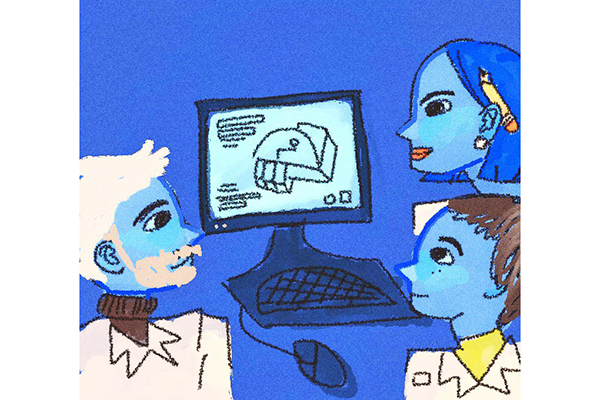University researchers have discovered a material that may increase the computing speed and data storage capabilities of computer chips.
In September, mechanical engineering researchers published an article in the Journal of the American Chemical Society that indicated a two-dimensional material known as antimony could replace silicon in computer chips. The discovery of this material may solve the problem of Moore’s Law, said Yuanyue Liu, article co-author and member of the Texas Materials Institute.
In 1965, Intel co-founder Gordon Moore said the number of transistors in each silicon chip will double every year, according to the Encyclopedia Britannica. Transistors are used in computer chips to amplify and switch electronic signals.
Silicon has historically been used to make transistors because it is a semiconductor, which is a material that is more conductive than an insulator like rubber but less conductive than a metal like steel, according to the Encyclopedia Britannica.
However, Liu said as the number of transistors per computer chip increases and the size of transistors decreases, silicon loses its functionality.
“Electron mobility will decrease if the silicon is made too small,” said Liu, mechanical engineering assistant professor. “So that’s the motivation for our work. We’re trying to find a good material that can replace silicon in order to continue with the Moore’s Law.”
Chenmu Zhang, materials science and engineering graduate student and member of the research team, said the most important takeaway from the work was understanding what governs a material’s electron mobility. Liu said materials with high mobility have properties that allow electrons to move through them quickly.
Long Cheng is the article co-author and mechanical engineering postdoctoral fellow. He said in materials with low electron mobility, electrons are scattered and unable to move as quickly, but electrons in antimony are able to move freely and quickly because they do not scatter very much.
“In electronics, we prefer materials to have high mobility because then you can just use a little electrical field to drive electrons moving very fast in the material, and then your computing can be faster and your data storage can be faster,” Liu said.
Liu said because the group only does theoretical and computer modeling work, they have not created new computer chips from antimony.
“I would just pass (the findings) to experimental groups (or) whoever is interested in this to test our prediction and hopefully be successful,” Liu said.





















